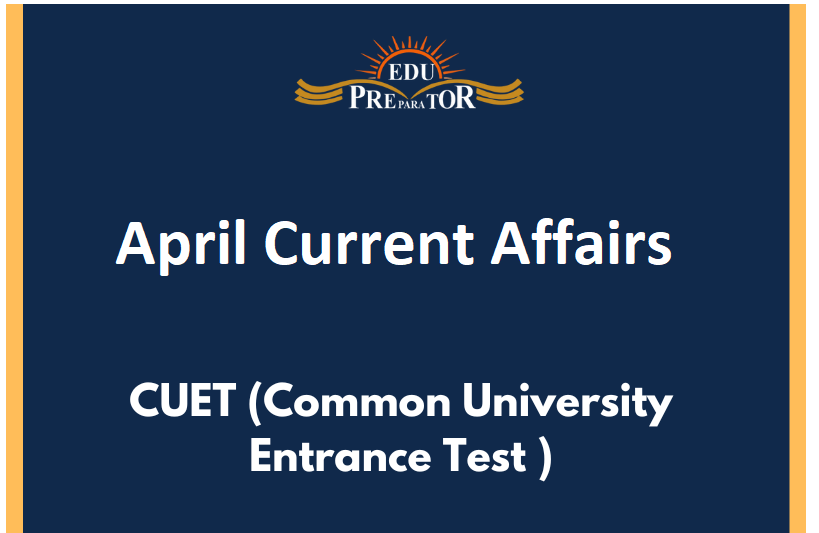
Polity
Supreme Court Empowers the Directorate of Enforcement (ED): Roles, Responsibilities, and Challenges
I. Introduction and About
- The Directorate of Enforcement (ED) has been accorded sweeping powers by the Supreme Court, allowing it to call upon anyone for any information. This decision received coverage in the context of the Tamil Nadu government and Collectors expressing inability to attend ED in person due to General Elections.
II. About the Directorate of Enforcement (ED)
- Established in 1956 under the Department of Economic Affairs, the ED was formed as an 'Enforcement Unit' to handle violations under the Foreign Exchange Regulation Act, 1947. Gradually, in 1957, it was named the Enforcement Directorate.
- Primarily, the directorate investigates offences in money laundering and foreign exchange law violations.
III. Key Enforced Acts by ED
A. Prevention of Money Laundering Act, 2002 (PMLA):
- ED enforces PMLA provisions by investigating, identifying assets derived from crime proceeds, pursuing provisional attachment of properties, and ensuring prosecution and property confiscation.
B. Foreign Exchange Management Act, 1999 (FEMA):
- Under FEMA, ED investigates suspected contraventions of foreign exchange laws, adjudicates and imposes penalties on proven offenders.
C. Fugitive Economic Offenders Act, 2018 (FEOA):
- ED is mandated to attach properties of economic offenders evading Indian courts and help confiscate their assets for the Central Government under FEOA.
IV. Powers Granted to the ED
- Apart from investigation powers, the ED can summon any individual deemed necessary during the investigation or proceedings either to produce any records or to give evidence.
V. Existing Challenges in ED's Functioning
A. Overburdened and Lengthy Investigations:
- ED’s investigations are often lengthy due to complex financial transactions, legal barriers, and the need for inter-agency coordination.
B. Political Interference:
- ED's functioning is at times scrutinised for alleged political interference, especially in high-profile cases.
C. Lack of Coordination:
- The efficiency of the ED can be compromised due to inadequate coordination with other law enforcement agencies including CBI, SEBI, and state police forces.
D. Legal and International Challenges:
- Legal challenges like delays in court proceedings, interpretation of legal provisions, and limitations in the legal framework can hamper ED’s efforts. Additionally, differences in international legal systems, jurisdiction issues, and diplomatic complexities can hinder effective global cooperation.
VI. Enhancing the ED's Effectiveness
- Addressing these challenges requires a multi-pronged approach like strengthening ED’s institutional capacity, improving coordination with other agencies, ensuring its autonomy and independence, providing adequate resources and training to its personnel.
- Legal reforms and enhancements in international cooperation mechanisms can further help improve ED’s fight against financial crimes and promote financial integrity.
Addressing LGBTQIA+ Rights in India: Progress and Challenges
I. Introduction and About:
- LGBTQIA+ is an acronym representing lesbian, gay, bisexual, transgender, queer, intersex, and asexual individuals with the "+" symbolising the continuous evolution and inclusion of several other identities.
II. Why in News?
- Recently, the Supreme Court of India cautioned against using court-ordered counselling to attempt to change the identity and sexual orientation of LGBTQIA+ individuals against their will
- This advisory is particularly significant in cases where distressed LGBTQIA+ individuals are forcibly separated from their partners by their families.
III. History and Legal Status of LGBTQIA+ Recognition in India:
- The journey of LGBTQIA+ recognition in India traverses through a challenging path since colonial times to recent landmark judicial verdicts
- Key milestones include the decriminalisation of same-sex relationships in 2018 (Navtej Singh Johar v. Union of India) and legal recognition and prohibition of discrimination against transgender individuals in 2019 (Transgender Persons (Protection of Rights) Act).
- Despite numerous advancements, there are still legal challenges for LGBTQIA+ community especially regarding the legalisation of same-sex marriages, as the Supreme Court in 2023 shied away from interfering in the Special Marriage Act (SMA), leaving it to the legislative bodies to enact necessary laws.
IV. Contemporary Challenges Facing LGBTQIA+ in India:
- Despite significant legal recognition, the community still faces social stigma, family rejection and inadequate access to healthcare.
- Their struggle intensifies with intersectional challenges, as individuals belonging to marginalised communities face compounded discrimination.
- Manipulative counselling practices, including conversion therapy, contribute to the issues faced by the LGBTQIA+ individuals, validating harmful stereotypes and contributing to internalised psychological conflicts.
V. Mapping the Way Forward
- Legal reforms such as enacting separate legislation for recognizing LGBTQIA+ rights are crucial. For instance, amendments made in the Hindu Marriage Act by Tamil Nadu, allowing 'Suyamariyathai' marriages can serve as a model.
- Strategies for economic empowerment like encouraging entrepreneurship within the LGBTQIA+ community and promoting LGBTQIA+-friendly workplaces, can ensure financial independence and job security.
- Facilitating access to LGBTQIA+-friendly healthcare services, including mental health support, can mitigate health-related challenges faced by this community.
- Utilising sports as a platform to break stereotypes can aid in the mental well-being and community bonding among LGBTQIA+ individuals.
In conclusion, while India has made substantial strides in recognizing LGBTQIA+ rights, a comprehensive approach to address multifaceted challenges inclusive of legal reforms, socio-economic empowerment, broader healthcare access, and use of platforms like sports for breaking stereotypes can ensure holistic progress in this sector.



Comments
Nam cursus tellus quis magna porta adipiscing. Donec et eros leo, non pellentesque arcu. Curabitur vitae mi enim, at vestibulum magna. Cum sociis natoque penatibus et magnis dis parturient montes, nascetur ridiculus mus. Sed sit amet sem a urna rutrumeger fringilla. Nam vel enim ipsum, et congue ante.
Cursus tellus quis magna porta adipiscin
View All